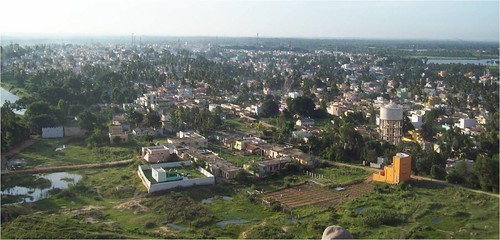/topics/contamination-pollution-and-quality
Contamination, Pollution and Quality
#SparkTheRise Twitter conference on ‘Water sustainability - A key to our future’, by Mahindra and Ashoka India
Posted on 07 Mar, 2013 11:03 AM

Budget 2013: Highlights from the water sector - Roundup of the week’s news (February 25- March 3, 2013)
Posted on 04 Mar, 2013 05:31 PMBudget 2013: Highlights from the water sector
Mumbai to get India's longest 'water metro' - Updates from the Resource and Information Network for the Coasts' March 2013 newsletter
Posted on 01 Mar, 2013 10:29 PM
The March edition of the TRINet has the following highlights:
Strategies for achieving environmental sustainability in rural development - A report by United Nations Development Programme
Posted on 23 Feb, 2013 10:22 AMThis report by the United Nations Development Programme (UNDP) presents strategies for inclusive rural development embodying the principles of environmental sustainability. It recommends measures needed to achieve green, including measuring and tracking, the use incentives and the building of capacities. It also contains a number of case studies showing how green results can be achieved.
Anthropogenic activities leads to deterioration of groundwater quality: A study of Mayyanad and Edamulakkal panchayats of Kollam district in Kerala
Posted on 22 Feb, 2013 10:07 AMKerala is a rain blessed state in the country. It has highest number of wells, when compared with other states. However due to its slanting topography there is significant decline in the ground water levels leading to severe water scarcity during summer months in most districts of the state. Further over extraction and dependence of groundwater for domestic use from the dug wells especially in rural pockets has resulted in several groundwater problems. In this backdrop the paper in The Ecosan- An International Quarterly Journal of Environmental Science, sheds light on groundwater quality issues in two panchayats of Kerala.
Some strategies for managing groundwater by Aditi Mukherji, IWMI
Posted on 22 Feb, 2013 09:53 AMGroundwater is essential for India's agricutural economy. However, there is a large variation in the groundwater resources of each region. Some regions are already over-exploited, while others can still tolerate more withdrawal. In her blog 'Waterscapes', Aditi Mukherji discusses the need for regional strategies to manage groundwater economy.
Dealing with arsenic in rural Bihar - Evaluating the successes and failures of mitigation projects
Posted on 21 Feb, 2013 11:51 PMArticle Courtesy: Delft University of Technology
Author(s): Matthijs Brouns, Merijn Janssen, Andrew Wong
Assessing the land use change and its impact on water resources: A study on the Mula and Mutha rivers catchment area in Pune
Posted on 17 Feb, 2013 09:11 PMLand use changes hydrologic system and have potentially large impacts on water resources. An assessment in an area with seasonally limited water availability and which is subject to rapid socio- economic development and population growth will provide an exemplary view on the local impacts of major recent developments in India. In this backdrop this paper analyzes past land use changes between 1989 and 2009 and their impacts on the water balance in the Mula and Mutha Rivers catchment upstream of Pune. The aim of the paper is:
- assess the land use changes between 1989/1990 and 2009/2010
- analyze the impacts of these changes on the long-term water balance components in the Mula and Mutha Rivers catchment upstream of the city of Pune.
Influence of anthropogenic contamination on fluoride concentration in groundwater: A study of Mulbagal town, Kolar district, Karnataka
Posted on 15 Feb, 2013 04:53 PMGroundwater contamination is a serious, but relatively ignored issue in the country. This contamination occurs in either through geogenic or anthropogenic means. Fluoride contamination is one such example of geogenic contamination that is widely found in the Kolar district of Karnataka. However, the fluoride levels in the town of Mulbagal are lower than those in the surroundings. Earlier, a study was conducted on the impact of pit toilets on the groundwater in the area. The present paper investigates the presence of any link between these two phenomena.
Corrosion induced oil pipeline leak in Chennai blows lid off two-year-old problem of CPCL pipeline and affects water table
Posted on 14 Feb, 2013 10:38 PMAuthor: M Valliappan





